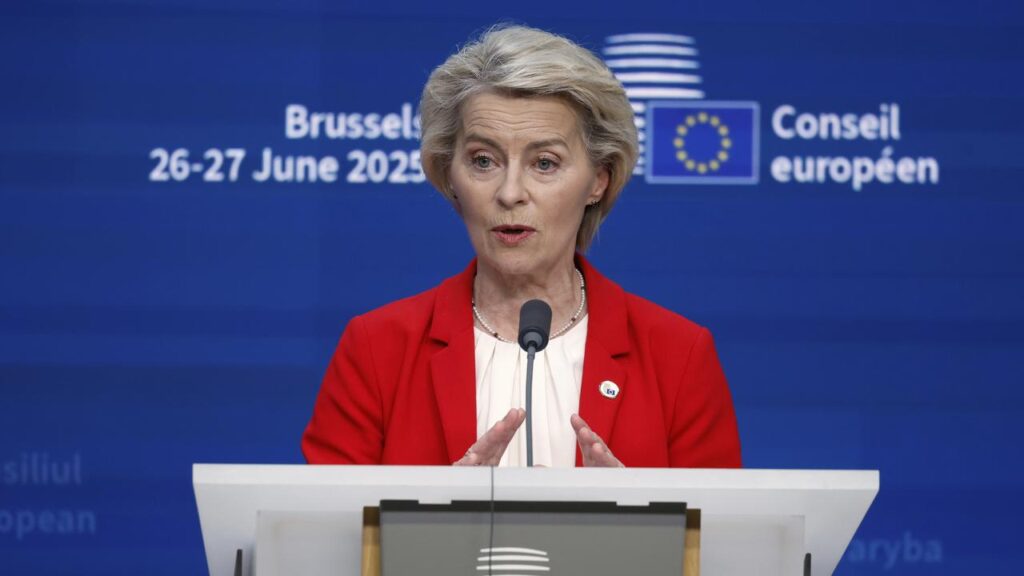Europe talks don’t rule out rejecting new US trade deal
Andreas Rinke and Michel Rose |

European Union leaders have discussed new US proposals for a trade deal, with Commission President Ursula von der Leyen not ruling out that tariff talks could fail and saying “all options remain on the table”.
Time is running out for the bloc to find a common position before a respite from higher tariffs threatened by US President Donald Trump expires on July 9, which could hammer exporters from cars to pharmaceuticals.
The EU’s two biggest economies were apparently at odds at the Brussels summit.
German Chancellor Friedrich Merz urged the EU to do a “quick and simple” trade deal rather than a “slow and complicated” one.
But in a separate briefing, French President Emmanuel Macron, while also wanting a quick and pragmatic trade deal, said his country would not accept terms that were not balanced.
All tools must be used to ensure a fair deal and if the US baseline rate of 10 per cent remained in place, then Europe’s response would have to have an equivalent impact, he said.
“Our goodwill should not be seen as a weakness,” Macron added.

Von der Leyen said the EU had received the latest US document on Thursday for further negotiations and the bloc was still assessing it.
“We are ready for a deal. At the same time, we are preparing for the possibility that no satisfactory agreement is reached,” she told reporters. “In short, all options remain on the table.”
The bloc is already subject to US import tariffs of 50 per cent on its steel and aluminium, 25 per cent for cars and car parts along with the 10 per cent tariff on most other EU goods that Trump has threatened could rise to 50 per cent without an agreement.
The European Union has agreed, but not imposed, tariffs on 21 billion euros of US goods and is debating a further package of tariffs on up to 95 billion euros of US imports.

Among the EU rebalancing options is a tax on digital advertising, which would hit US giants like Alphabet Inc’s Google, Meta, Apple, X and Microsoft and eat into the trade surplus in services the US has with the EU.
The EU leaders also discussed ideas to carve out a new form of trade cooperation with Asia-Pacific countries, including Australia, that would be a way of reforming what they see as an ineffective World Trade Organisation.
Merz said the idea was in its early stages but could include mechanisms to resolve disputes, as the WTO was meant to do.
“You all know that the WTO doesn’t work any more,” he said.
The EU summit follows a NATO meeting this week that agreed to drastically raise defence spending in the military alliance but left some European countries finding it difficult to pay, and Spain explicitly demanding an opt-out.
The EU bloc also has to tackle a raft of other issues, including its support for Ukraine and the prospect of EU membership for a country still at war against nuclear-armed Russia. Hungary is firmly opposed.
Ukrainian President Volodymyr Zelenskiy had urged the EU to pass a new sanctions package on Russia targeting its oil trade and banks, as well as to give a clear signal on his country’s EU accession.
Before the start of the summit however, Slovakia’s Prime Minister Robert Fico said he would block a vote on the sanctions until his country’s concerns on gas supplies were addressed.
Reuters